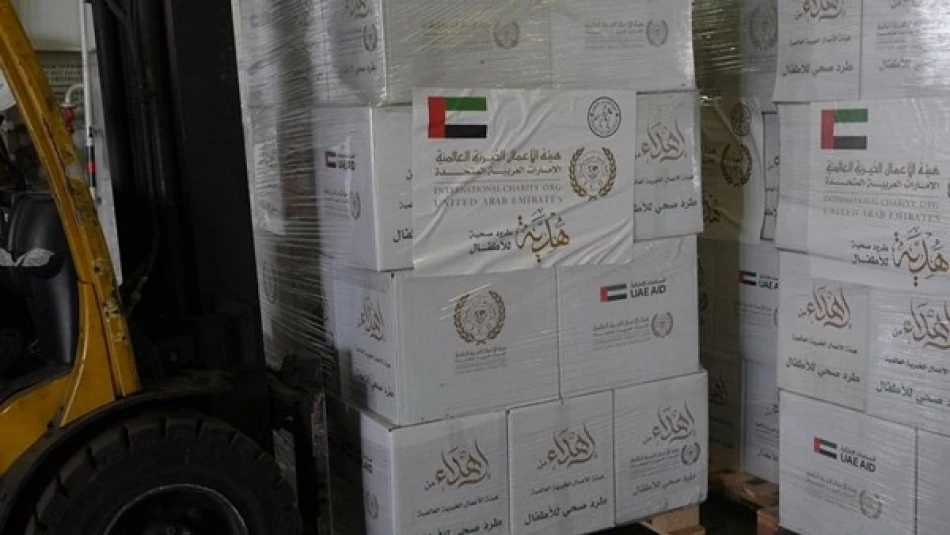
Heroic 'Khalifa' Ship Sets Sail to Support Gaza, Signaling Humanitarian Efforts
UAE Launches Eighth Gaza Relief Ship as Humanitarian Crisis Deepens
The United Arab Emirates has dispatched its eighth humanitarian aid vessel to Gaza, marking a significant escalation in the Gulf state's relief efforts as the Palestinian territory faces mounting civilian casualties and infrastructure collapse. The ship, loaded at Abu Dhabi's Khalifa Port, will transit through Egypt's Al-Arish port before delivering critical supplies to Gaza's besieged population.
Comprehensive Medical and Basic Supplies Package
This latest shipment represents one of the most comprehensive aid packages sent by the UAE to date. The vessel carries a fully equipped field hospital with multiple medical specialties, ambulances, and essential pharmaceuticals—addressing Gaza's crippled healthcare system where hospitals have been operating at minimal capacity.
Beyond medical supplies, the cargo includes ready-to-eat food packages, equipment for community kitchens and field bakeries, emergency shelter materials including tents, relief bags, clothing, bedding, and specialized hygiene kits for families and children. Water tanks for drinking water distribution address the critical shortage of clean water infrastructure.
Strategic Humanitarian Diplomacy in Action
The UAE's sustained relief campaign—now in its eighth iteration—demonstrates how Gulf states are leveraging humanitarian aid as a form of soft power diplomacy. Unlike one-off emergency responses, this systematic approach positions the Emirates as a reliable partner in crisis management while building long-term regional influence.
Regional Coordination Model
The UAE's use of Egypt's Al-Arish port as a transit point highlights the complex logistics required for Gaza aid delivery. This route has become increasingly important as direct access remains severely restricted, forcing humanitarian organizations to rely on Egyptian cooperation—a dynamic that strengthens Cairo's role as a regional mediator.
Implications for Regional Stability
The Emirates' consistent humanitarian engagement reflects broader Gulf strategy of maintaining regional stability through economic and social support rather than military intervention. This approach mirrors successful UAE initiatives in Yemen and Lebanon, where sustained aid delivery has helped maintain diplomatic relationships across political divides.
For international observers, the UAE's methodical response contrasts sharply with more reactive approaches from other regional powers. The inclusion of field hospitals and medical infrastructure suggests preparation for prolonged engagement rather than temporary relief—indicating expectations that the humanitarian crisis will persist.
Economic and Political Calculations
While framed as humanitarian assistance, these shipments serve multiple strategic purposes. They demonstrate UAE's capacity for rapid logistics deployment, showcase its charitable institutions' capabilities, and maintain the country's carefully cultivated image as a moderate, stabilizing force in Middle Eastern affairs.
The systematic nature of these shipments—this being the eighth in a series—suggests a well-funded, long-term commitment that few regional actors can match. This consistency in humanitarian delivery strengthens the UAE's position in future diplomatic negotiations and regional peace processes.
Most Viewed News

 Layla Al Mansoori
Layla Al Mansoori






